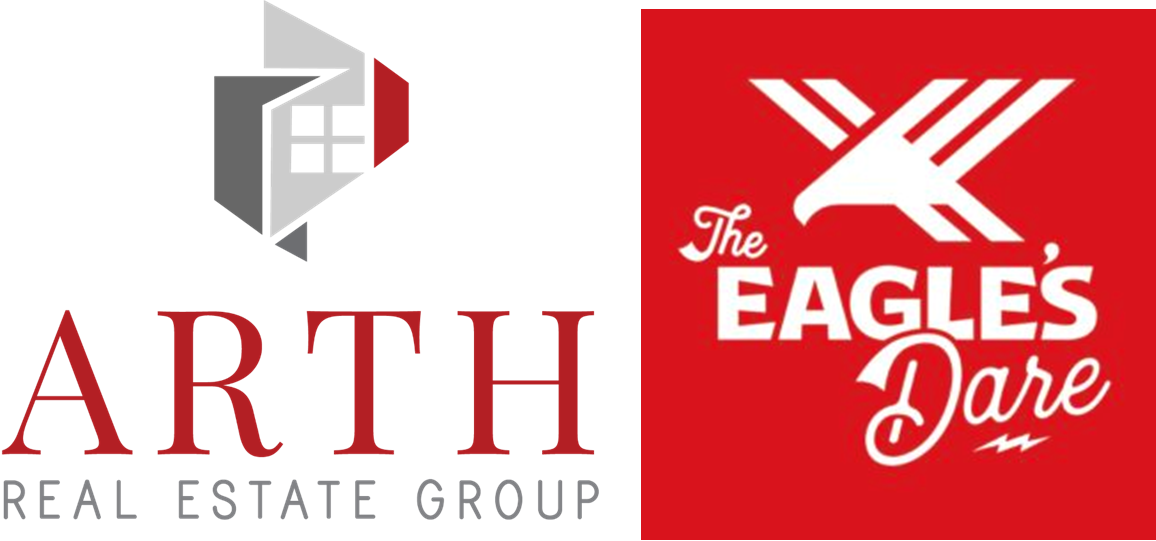ARTICLE I: NAME, DEFINITIONS & OFFICES
Section 1. Definitions:
Wherever used in these Bylaws, the following terms shall have the following meanings:
- “Downtown Wilmington Association” refers to the Downtown Wilmington Association.
- “Downtown Wilmington Association Year” refers to the calendar year commencing January 1.
The name of this organization shall be the Downtown Wilmington Association, which will act as a separate and distinct group.
Section 2. Offices:
- Principal Office: The principal office of the Corporation shall be located at the current President’s business address or such other location designated by the Board of Directors.
- Registered Office: The registered office required by law will be maintained in the State of North Carolina and may, but need not, be identical with the principal office.
- Additional Offices: The Corporation may have offices at other locations within or outside North Carolina as designated by the Board of Directors.
ARTICLE II: PURPOSE, POWERS, AND LIMITATIONS
Section 1. Purpose:
The Downtown Wilmington Association is a nonprofit corporation and shall operate exclusively for educational and charitable purposes within the meaning of Section 501(c)(3) of the Internal Revenue Code, as amended, or the corresponding section of any future Federal tax code. Its purpose is to strengthen and support the Downtown Wilmington community through programs, advocacy, education, events, and initiatives that foster economic growth and cultural engagement.
Section 2. Powers:
The Downtown Wilmington Association shall have the power to engage in any lawful acts necessary or convenient to achieve its charitable purposes, either directly or in conjunction with others. These powers include, but are not limited to:
- Accepting contributions from public and private sectors, whether financial or in-kind.
- Collaborating with other organizations or individuals whose activities further align with the mission of the Downtown Wilmington Association.
Section 3. Nonprofit Status and Exempt Activities Limitation:
- Nonprofit Legal Status: The Downtown Wilmington Association is a North Carolina nonprofit corporation, recognized as tax-exempt under Section 501(c)(3) of the United States Internal Revenue Code.
- Exempt Activities Limitation:
- No officer, director, employee, member, or representative of the Downtown Wilmington Association shall engage in activities not permitted for organizations exempt from federal income tax under Section 501(c)(3).
- No part of the net earnings of the Downtown Wilmington Association shall inure to the benefit of any private individual, except for reasonable compensation for services rendered and payments made to further the organization’s charitable purposes.
ARTICLE III: OBJECTIVES, MEMBERS, DUES, AND MEETINGS
Section 1. Objectives:
The objectives of the Downtown Wilmington Association are to:
- Support and strengthen the Downtown Community through advocacy, programs, education, and events.
- Create and promote community awareness for Downtown Wilmington Business Districts.
- Conduct promotional activities, including events, decorations, cooperative advertising, and joint endeavors.
- Establish operating procedures to foster harmony among members.
Section 2. Membership:
- Eligibility: Membership is open to all individuals, businesses, property owners, and others doing business in or interested in Downtown Wilmington’s future.
- Voting Rights: Each membership, whether individual or business, is entitled to one (1) vote.
- Membership Period: Annual memberships are valid from January through December. Membership is maintained through active participation and renewal.
Section 3. Annual Meetings:
The Downtown Wilmington Association shall hold an annual meeting each November for the election of Directors and Officers. Business not specifically stated in the notice may also be transacted. Failure to hold an annual meeting does not invalidate the Downtown Wilmington Association’s existence.
Section 4. General Membership Meetings:
General Membership meetings shall be held monthly to inform members and conduct business as necessary. These meetings are open to all members and provide updates on Downtown Wilmington Association initiatives, events, and community matters. Additional meetings may be called by the President or upon the request of one-third of the membership.
Section 5. Directors’ Meetings:
The Board of Directors shall meet monthly to oversee the governance and strategic direction of the Downtown Wilmington Association. These meetings are essential to ensure proper oversight, planning, and execution of the Association’s objectives. Directors missing three (3) consecutive Board meetings without a valid excuse may be considered to have resigned.
Section 6. Meeting Locations and Notice:
All General Membership and Board of Directors meetings shall be held within Downtown Wilmington, North Carolina, at locations designated by the Board of Directors. The Board may also approve virtual or hybrid meeting formats as necessary.
Members in good standing shall receive notice of annual or special meetings no fewer than ten (10) days and no more than thirty (30) days in advance. Notice may be written, printed, or electronic.
Meetings are open to members and guests. Non-member guests are welcome to attend up to three (3) general membership meetings. After three visits, guests are encouraged to become members to continue participating.
Section 7. Quorum:
A quorum for General Membership meetings requires the presence, in person or by proxy, of at least ten percent (10%) of the paid membership. In the absence of a quorum, members present may adjourn the meeting until a quorum is achieved.
A quorum for Board of Directors meetings shall consist of a simple majority (more than 50%) of the current Board members. No official Board business may be conducted without a quorum.
Section 8. Voting:
A majority of votes cast at a properly called meeting with a quorum shall be sufficient to authorize actions unless these Bylaws require a greater majority.
ARTICLE IV: DOWNTOWN DISTRICTS
Section 1. Recognized Districts:
The Downtown Wilmington Association recognizes the following districts as integral to the Downtown Wilmington area: Brooklyn Arts, Central Business, Castle Street, Cargo District, North Waterfront, Soda Pop, and South Front.
Section 2. Creation of Downtown Districts:
Establishing any new district shall require significant and sustained engagement from business owners within the proposed area, including active participation as members of the Downtown Wilmington Association. Each proposed district must designate a representative who is a business owner in the area to serve as the liaison to the Alliance.
Proposals for new districts must include clear geographic boundaries, comprehensive documentation of community support, and evidence of alignment with the mission and objectives of the Downtown Wilmington Association. All submissions shall undergo formal review by a designated committee and must receive approval by a two-thirds (2/3) majority vote of the Board of Directors.
Section 3. Dissolution of a District:
The Downtown Wilmington Association may dissolve a recognized district if it no longer maintains a defined district representative, active participation by business owners, or alignment with the Alliance’s mission. Dissolution requires a review by the Board of Directors and approval by a two-thirds (2/3) majority vote. Businesses within a dissolved district may remain members but will not be represented as a distinct district.
ARTICLE V: OFFICERS AND DIRECTORS
Section 1. Officers:
The elected officers are the President, Vice President, Secretary, and Treasurer (the same person may hold the latter two roles). Officers are elected for one-year terms. Officers’ duties align with their titles and responsibilities assigned by the Board. The Secretary shall keep the Downtown Wilmington Association’s minutes.
Section 2. Board of Directors:
Composition and Representation:
- The Board of Directors shall consist of four (4) elected officers (President, Vice President, Secretary, and Treasurer) and nine (9) elected regular members.
- Regular members of the Board will include representatives from each of the designated business districts.
- At least one Board member shall be a Wilmington City Council representative. While exempt from membership criteria, the City Council representative is encouraged to attend meetings regularly to stay informed and engaged.
- Non-participation or consistent absence may result in replacement by a majority vote of the Board.
Terms of Service:
- Officers (President, Vice President, Secretary, Treasurer) shall serve one-year terms and must be re-elected annually. Officers may serve consecutive terms if re-elected.
- If an officer is not re-elected to their position but their term as a Director has not yet expired, they shall remain on the Board as a regular Director for the remainder of their elected term.
- Directors shall serve staggered terms of two (2) years to ensure continuity. Half of the Board will be elected annually.
Elections:
- A nominating committee shall propose candidates for the Board of Directors at least 30 days before the annual meeting.
- Elections shall occur at the annual meeting by ballot. Members may vote in person, by proxy, or via written representative authorization.
- The Board shall fill vacancies among officers or Directors for the remainder of the unexpired term. Interim appointees must stand for election at the next annual meeting if their term extends beyond the current Downtown Wilmington Association year.
Voting:
- The act of a majority of directors present at a meeting where a quorum exists shall constitute the act of the Board, unless otherwise required by law or these Bylaws.
- In the event of a tie vote, the President (or Treasurer, if the President is absent) shall cast the deciding vote to resolve the matter.
Attendance and Absences:
- Board members are expected to attend all scheduled Board meetings and general membership meetings.
- Directors may participate in meetings through any means of communication that allows all participants to hear each other simultaneously, including in-person attendance, video conferencing, or telephone calls. Such participation constitutes presence at the meeting.
- Missing three (3) Board meetings or three (3) general membership meetings within a calendar year, without an excused absence may result in removal from the Board by a majority vote.
- Valid reasons for absences include personal illness, family emergencies, or unavoidable work obligations. Members must notify the President or Secretary in advance for an absence to be considered excused.
- The Board shall review attendance records and patterns of absence regularly and take appropriate action if necessary.
Eligibility:
To qualify for election, a nominee must:
- Be a paid member of the Downtown Wilmington Association with up-to-date membership dues and in good standing.
- Be the owner of a business physically located in the downtown area or operate a business that serves a significant number of businesses in the downtown area.
- Have attended at least three (3) general membership meetings in the six (6) months prior to the election.
- Have owned or operated a business for at least one (1) year.
- Demonstrate a track record of active involvement in downtown community events, initiatives, or programs that align with the Alliance’s mission.
- Be able to commit to the time requirements and responsibilities of the board, including active participation in meetings, committees, and events.
- Disclose any potential conflicts of interest and agree to adhere to the Alliance’s Conflict of Interest Policy.
City Council representatives are exempt from these criteria are strongly encouraged to meet participation expectations.
Responsibilities and Engagement:
- Committee Participation: All Directors must actively participate in at least one committee annually and contribute meaningfully to its initiatives. Directors may also chair committees to advance the Downtown Wilmington Association’s mission.
- Event Involvement: Directors are strongly encouraged to represent the Downtown Wilmington Association at ribbon cuttings, grand openings, and other events.
Failure to meet these engagement expectations may result in a review by the Board and removal by majority vote.
Removal of Directors and Officers:
Directors or officers may be removed for:
- Failure to fulfill responsibilities, including committee participation and event engagement.
- Missing three (3) Board meetings or three (3) general membership meetings without valid, excused reasons.
- Unethical, unlawful, or inappropriate behavior that harms the Downtown Wilmington Association’s reputation or operations.
- Non-participation or consistent absence by non-elected members (e.g., City Council representatives).
Removal requires a majority vote of the Board.
Dispute Resolution:
Any disputes arising among board members or between board members and the Downtown Wilmington Association shall be resolved through mediation facilitated by an impartial third party, as agreed upon by the Board of Directors. If mediation fails to reach a resolution, the matter may be escalated to binding arbitration in accordance with applicable laws and the Alliance’s governing policies.
Section 4. Officer Roles and Responsibilities:
President:
- Serves as the primary leader and representative of the Downtown Wilmington Association.
- Presides over all Board meetings, general membership meetings, and the annual meeting.
- Oversees the implementation of Board decisions and ensures alignment with the Downtown Wilmington Association’s mission and goals.
- Acts as the official spokesperson for the Downtown Wilmington Association.
- Appoints committee chairs, subject to Board approval, and serves as an ex-officio member of all committees.
- Coordinates with the Treasurer to review financial documents and ensure fiscal accountability.
Vice President:
- Assists the President in fulfilling their responsibilities and assumes the President’s duties in their absence.
- Acts as a liaison between committees and the Board to ensure communication and progress on initiatives.
- Supports event planning and execution, representing the Downtown Wilmington Association at public and private functions.
- May take on additional duties as assigned by the President or Board.
Secretary:
- Records and maintains accurate minutes of all Board meetings, general membership meetings, and the annual meeting.
- Ensures timely distribution of meeting notices, agendas, and other communications to members.
- Maintains official records of the Downtown Wilmington Association, including bylaws, membership rosters, and correspondence.
- Oversees the management of Board-related documentation, ensuring compliance with legal and organizational requirements.
- Supports the President and Vice President in administrative tasks as needed.
Treasurer:
- Manages all financial accounts and transactions of the Downtown Wilmington Association.
- Prepares and presents financial reports at monthly Board meetings and the annual meeting, including a profit-and-loss statement and budget updates.
- Oversees the annual budget process and ensures alignment with the Downtown Wilmington Association’s goals.
- Coordinates with the City of Wilmington to manage event funding and ensures proper segregation of funds in designated accounts.
- Maintains financial records in accordance with best practices, utilizing tools such as QuickBooks.
- Coordinates the annual audit of the Downtown Wilmington Association’s finances, as required.
- Works with committee chairs to allocate budgets for events and initiatives.
Section 5: Conflict of Interest Policy:
All officers, directors, and committee members must disclose potential conflicts of interest. The Board shall periodically review a conflict of interest policy to ensure that transactions do not result in undue benefit to any individual. Members with conflicts shall abstain from voting or participating in decisions related to the conflict.
Section 6. Working Board Agreement:
The Downtown Wilmington Association operates as a volunteer-based working Board of Directors. To ensure fairness and prevent undue burden on individual members, the following policies govern board participation:
Time Commitment and Equitable Responsibilities
Directors are expected to contribute up to five (5) hours per month to board-related activities, including meetings, committee work, and event participation. Responsibilities shall be distributed fairly to prevent over-reliance on a few individuals. The Board will periodically review workloads to ensure balanced participation, and directors unable to meet this commitment should notify the Board Chair in writing to discuss their capacity.
Use of Personal or Business Resources
Directors are not required to utilize personal staff, resources, or business services for board responsibilities unless expressly approved in writing by the Board of Directors. Reimbursement or compensation may be provided for approved contributions of personal resources.
Member Engagement and Volunteer Expectations
The Board will monitor director engagement and address inactivity or inequitable workload distribution. Tasks exceeding reasonable volunteer expectations may be outsourced or compensated, as deemed necessary and approved in writing by the Board of Directors, to uphold the voluntary nature of participation while ensuring organizational needs are met.
Section 7. Compensation for Board Members and Services:
Compensation for Board Services: Directors shall receive no compensation for carrying out their volunteer duties as board members. However, the Board may adopt policies for reimbursing reasonable expenses incurred in conjunction with board responsibilities, such as travel expenses for attending meetings.
Compensation for Professional Services: Directors are not restricted from receiving compensation for professional services provided to the Association outside their regular board duties. Such compensation must be:
- Reasonable and fair to the Association.
- Reviewed and approved by the Board.
- In compliance with the Association’s Conflict of Interest Policy and applicable state laws.
Section 8. Manner of Acting:
Majority Vote: The act of a majority of directors present at a meeting where a quorum exists shall be the act of the Board, unless otherwise required by law or these Bylaws.
Hung Decisions: In the event of a tie vote, the President (or Treasurer, if the President is absent) shall cast the deciding vote to resolve the matter.
Participation: Directors may participate in meetings through any means of communication that allows all participants to hear each other simultaneously, including in-person attendance, video conferencing, or telephone calls. Such participation constitutes presence at the meeting.
ARTICLE VI: COMMITTEES
Section 1. Standing Committees:
The Downtown Wilmington Association shall establish the following Standing Committees to support its mission and goals. The President shall appoint committee chairs and members, subject to Board approval.
- Executive Committee: Oversees the Downtown Wilmington Association’s strategic direction and operations, making urgent decisions between Board meetings. Manages financial health, supervises committees, and serves as the primary liaison with external stakeholders.
- Community Outreach & Partnerships Committee: Builds relationships with local organizations, nonprofits, and businesses. Coordinates community service initiatives and collaborative projects that align with the Downtown Wilmington Association’s mission.
- Governance & Nominations Committee: Maintains effective governance, reviews bylaws, and oversees the nomination and election process for Board members. Conducts Board assessments and ensures compliance with governance requirements.
- Membership/Outreach Committee: Focuses on member recruitment, retention, and engagement. Plans member events, gathers feedback, and develops benefits and services to enhance membership value.
- Marketing Committee: Promotes the Downtown Wilmington Association and its initiatives through marketing and public relations. Manages the website, social media, and other communications to engage members and the public.
- Events/Districts Committee: Plans and executes events to support the Downtown Wilmington Association’s mission. Works with district representatives to organize district-specific initiatives and evaluate event success.
Section 2. Special Committees:
The President may appoint special committees as needed to address specific projects or initiatives, subject to Board approval. The President or Board shall determine committee size, duties, and powers.
Section 3. Committee Leadership:
Each Standing Committee is led by a Chair, who coordinates committee activities, ensures alignment with the Downtown Wilmington Association’s goals, and reports progress to the Board.
- Community Outreach & Partnerships Chair: Oversees community engagement and external partnerships.
- Governance & Nominations Chair: Manages Board elections and governance updates.
- Membership/Outreach Chair: Directs recruitment and retention efforts.
- Marketing Chair: Oversees communications, promotions, and public relations.
- Events/Districts Chair: Leads event planning and district initiatives.
Section 4. President’s Role in Committees:
The President serves as an ex-officio member of all committees and must be notified of their meetings. The President ensures committees operate effectively and support the Downtown Wilmington Association’s strategic goals.
ARTICLE VII: ADMINISTRATIVE AND FINANCIAL PROVISIONS
Section 1. Financial Transactions:
Checks, drafts, or orders for payment will be signed by the Treasurer or Vice President and countersigned by the President or Assistant Treasurer.
Section 2. Annual Reports and Fiscal Year:
An annual financial report prepared by a qualified accountant shall be presented at the annual meeting.
The fiscal year of the Downtown Wilmington Association shall be from January 1 to December 31.
Section 3. Financial Accounts:
The Downtown Wilmington Association receives funding through a combination of membership dues, sponsorships, and event funding from the City of Wilmington. The Treasurer is responsible for managing all financial processes and ensuring compliance with financial guidelines.
Membership Dues:
- Members are required to pay annual dues to maintain their membership in good standing.
- Membership dues are collected once per year and must be paid by January 31.
- The Treasurer shall provide reminders to members regarding payment deadlines and track dues payments.
City Funding:
- The Treasurer shall coordinate the annual application process to request event funding from the City of Wilmington.
- Funds from the City shall be maintained in a designated checking account labeled as the “City Services Account.” These funds must remain separate from the membership operating account.
Sponsorships:
- The Association may accept sponsorships from businesses, organizations, or individuals to support its mission, events, programs, and initiatives.
- Sponsorship agreements must align with the Association’s mission and values.
- Sponsorship funds shall be tracked separately within the Association’s financial records and allocated to specific initiatives as agreed upon in sponsorship terms or as determined by the Board.
- The Association reserves the right to decline any sponsorship that conflicts with its mission, values, or objectives.
Financial Oversight:
- The Treasurer shall coordinate an annual audit of the Association’s financials in accordance with the City of Wilmington’s requirements.
- All bank accounts must be reconciled monthly by the Treasurer.
- Financial records shall be maintained using QuickBooks or similar accounting software.
Reporting:
- The Treasurer shall present a current profit-and-loss (P&L) statement at each monthly Board of Directors meeting.
- At the annual meeting, the Treasurer shall provide members with a comprehensive financial statement, including a summary of the Association’s financial status for the year.
Section 4. Debts:
The Downtown Wilmington Association shall not incur debts on behalf of individual members.
Section 5. Grant and Initiative Support:
The Association may provide support to initiatives, events, and programs that align with its mission to promote economic growth, community engagement, and vibrancy within Downtown Wilmington. Support may include promotional assistance, strategic resources, or recognition, as determined by the Board of Directors. Proposals must align with the Association’s mission and demonstrate clear community benefit. All applications are subject to Board review and approval.
Support will not be provided to:
- Initiatives that conflict with the Association’s mission or values.
- Events or programs that primarily benefit private individuals, businesses, or entities without broader community impact.
- Activities that fail to comply with applicable laws, permits, or Association policies.
The Association reserves the right to decline any proposal at its discretion and to withdraw support if the terms of approval are not upheld.
Section 6. Conflict of Interest Policy:
All officers, Directors, and committee members must disclose any potential conflicts of interest. Conflicts may arise when personal, professional, or financial interests could affect decisions made on behalf of the Association.
- Disclosure: Members must disclose conflicts to the Board in writing.
- Abstention: Members with conflicts must abstain from voting or influencing decisions related to the conflict.
- Documentation: All disclosures and actions taken to address conflicts must be documented in the meeting minutes.
Section 7. Indemnification Clause:
The Association shall indemnify its officers, Directors, and employees to the fullest extent permitted by law for liabilities incurred while performing their duties. This includes legal defense costs unless the individual acted in bad faith or engaged in willful misconduct.
Section 8. Records and Retention Policy:
The Downtown Wilmington Association shall maintain complete and accurate books, financial records, and minutes of all Board and committee meetings. Copies of the Articles of Incorporation and Bylaws shall also be kept and made available for inspection as required by law. The Association shall retain records for the following durations:
- Meeting Minutes: Permanently.
- Financial Records: Seven (7) years.
- Membership Records: Seven (7) years.
- Governance Documents: Permanently.
Records shall be securely stored and made available for review as required by law.
ARTICLE VIII:
Section 1. Amendments to the Bylaws:
The Bylaws may be amended, altered, or repealed by a majority vote of the Board of Directors, provided:
- Amendments do not cause the organization to lose its tax-exempt status under Section 501(c)(3) of the Internal Revenue Code.
- Amendments do not affect the voting rights of directors unless ratified by a two-thirds (2/3) majority vote.
- All amendments align with the Articles of Incorporation and further the purpose of the Downtown Wilmington Association.
Section 2. Prohibited Activities:
The Association shall comply with IRS Section 501(c)(3) and avoid activities benefiting private individuals, substantial lobbying, or political campaigns. No part of the net earnings of the corporation shall benefit or be distributable to its members, directors, officers, or other private persons, except for reasonable compensation for services rendered and payments furthering the Association’s purposes.
The Association shall not engage in propaganda or attempts to influence legislation, nor participate in or intervene in any political campaign on behalf of or in opposition to any candidate for public office. Any activities not permitted under Section 501(c)(3) of the Code are strictly prohibited.
Section 3. Dissolution Plan:
Upon termination or dissolution of the Downtown Wilmington Association, any remaining assets shall be distributed to one or more qualifying organizations described in Section 501(c)(3) of the Internal Revenue Code, or its successor statutes. The recipient organization(s) must align with the mission and purpose of the Downtown Wilmington Association.
The recipient organization shall be selected by a majority vote of the Board of Directors. If the Board cannot agree, the recipient shall be chosen through a petition filed in a court of competent jurisdiction. In the event that no qualifying organization exists to receive the assets, the remaining assets shall be distributed to the Treasurer of the State of North Carolina to be added to the general fund.








